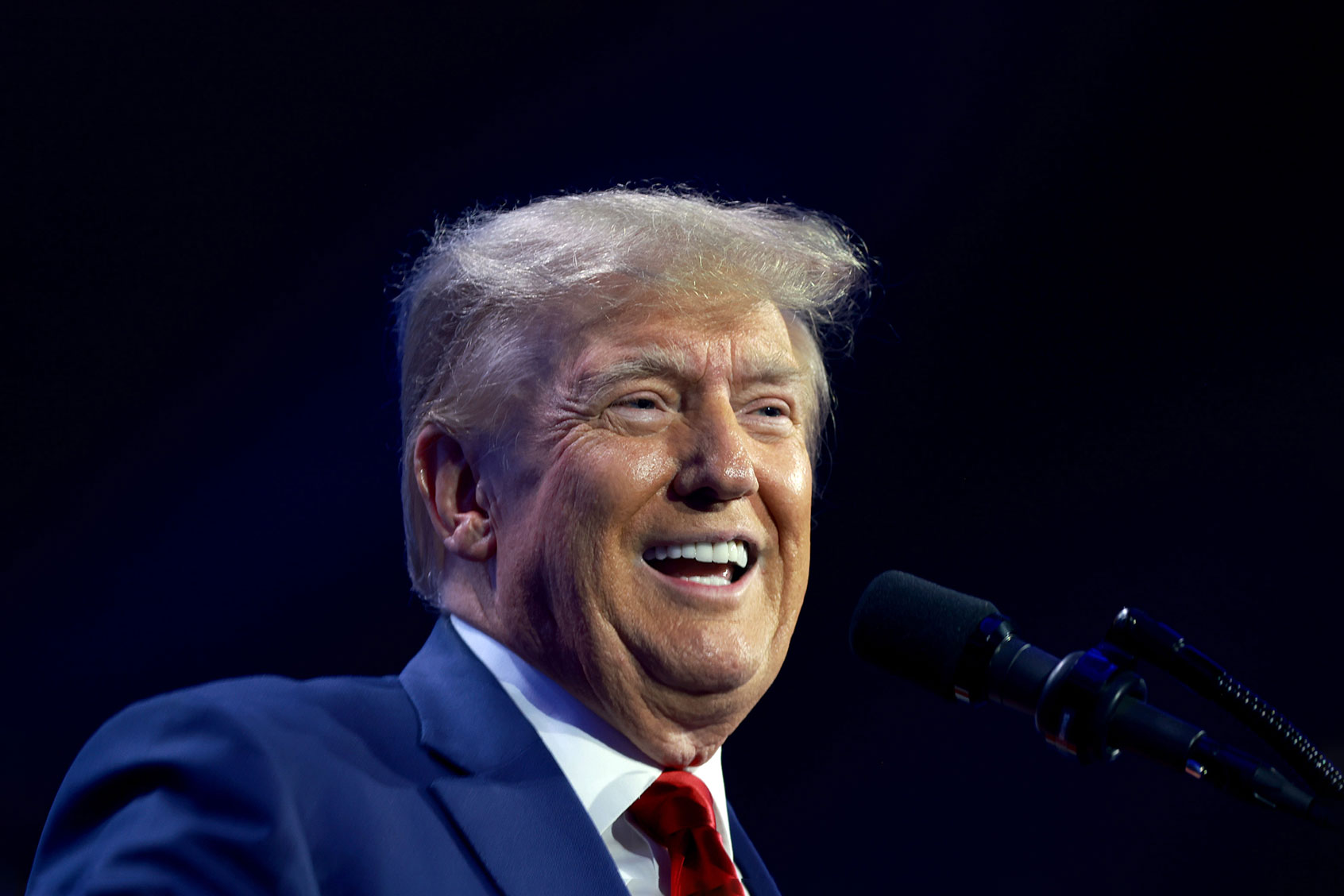Former President Donald Trump insisted that he “could have pardoned” himself during his presidency in the four criminal cases now amounting to nearly 100 felony charges across the federal and state levels. The GOP frontrunner said he was “given the option” to do so before leaving office during an interview, set to be released Sunday, with NBC News anchor Kristen Welker after she asked whether he would absolve himself if he were re-elected in 2024.
“I was given an option to pardon myself. I could have pardoned myself when I left. People said, ‘Would you like to pardon yourself?’ I had a couple of attorneys that said, ‘You can do it if you want.’ I had some people that said, ‘It would look bad if you do’ — because I think it would look terrible,” Trump said.
“I said, ‘The last thing I’d ever do is give myself a pardon.’… The last day, I could have had a pardon done that would have saved me all of these lawyers and all of these fake charges, these Biden indictments,” he added, repeating his frequent cry that his indictments are politically motivated.
We need your help to stay independent
Trump dubbed the prosecutors who have indicted him this year “thugs, horrible people” and “fascists” who have been after him “from the day I came down the escalator with Melania” before rattling off examples of his “great job as president.” All the while, he continued to reiterate that he could have pardoned himself but didn’t want to consider it.
“I never even wanted to think about it, and I could have done it,” he told Welker. “And all of these questions you’re asking me about the fake charges, you wouldn’t be asking me because it’s a very powerful thing for a president.”
EXCLUSIVE: Fmr. Pres. Trump tells Kristen Welker that he was “given an option to pardon” himself before leaving office.
Trump: “I had a couple of attorneys that said, ‘You can do it if you want.’ … I said, ‘The last thing I’d ever do is give myself a pardon.’” pic.twitter.com/1grDtjDXt2
— Meet the Press (@MeetThePress) September 14, 2023
Legal experts, however, have swiftly refuted the former president’s claim. Former White House Ethics Czar Norm Eisen, in a Thursday appearance with CNN, said that Trump pardoning himself would have likely been against the law taken with the foundational decision in Thomas Bonham v. College of Physicians, “one of the oldest precedents in Anglo-American law.”
“The principle of that case is that no person can be a judge in their own case,” Eisen told the panel after referencing a Washington Post opinion he co-authored on the issue of self-pardoning when it first arose during the Trump administration.
In the 1610 case, the Court of Common Pleas ruled that the College of Physicians could not act as a court and a litigant in the same case by receiving a fine it had the power to dole out despite the college’s royal charter authorizing it to punish individuals for practicing without a license as Bonham had.
“The Constitution embodies this broad precept against self-dealing in its rule that congressional pay increases cannot take effect during the Congress that enacted them, in its prohibition against using official power to gain favors from foreign states and even in its provision that the chief justice, not the vice president, is to preside when the Senate conducts an impeachment trial of the president,” Eisen, legal scholar Laurence Tribe and lawyer Richard Painter wrote in the article.
“The Constitution’s pardon clause has its origins in the royal pardon granted by a sovereign to one of his or her subjects. We are aware of no precedent for a sovereign pardoning himself, then abdicating or being deposed but being immune from criminal process,” they continued. “If that were the rule, many a deposed king would have been spared instead of going to the chopping block.”
Though the principle in Dr. Bonham’s case is a piece of foundational jurisprudence, Eisen noted on the air Thursday that it has never been resolved as a legal matter but has been referenced in a federal memo.
Want a daily wrap-up of all the news and commentary Salon has to offer? Subscribe to our morning newsletter, Crash Course.
“Nixon’s office of legal counsel, four days before he resigned, issued an opinion: The lawyers — lawyers within the Department of Justice — know Richard Nixon could not pardon himself. So there is a federal opinion memo,” Eisen added during the CNN segment. “Probably if [Trump] tried, it would fail, but nobody really knows.”
Trump just declared that he could've pardoned himself while in office–but that would've been against the law
A foundational precedent in Anglo-American jurisprudence holds that no person can be a judge in their own case
I explained @CNN @wolfblitzer @jamiegangel @GloriaBorger pic.twitter.com/DjkkPpQxvQ
— Norm Eisen (#TryingTrump out now!) (@NormEisen) September 15, 2023
MSNBC legal analyst Lisa Rubin also noted Trump’s “especially funny” declaration on self-pardoning in regards to the federal case regarding his retention of national security documents.
“Trump’s insistence to @kwelkernbc that he could have but did not pardon himself during his last presidency is especially funny given that he could not have pardoned himself for the crimes charged in the classified docs case,” she wrote on X, formerly known as Twitter, Friday. “Why? Because the charged conduct did not occur until after he was no longer president,” she added. “A president can charge uncharged crimes—but not ones that have not yet happened.”
Why? Because the charged conduct did not occur until after he was no longer president. A president can charge uncharged crimes—but not ones that have not yet happened. FIN.
— Lisa Rubin (@lawofruby) September 15, 2023
Read more
about Trump’s legal entanglements


